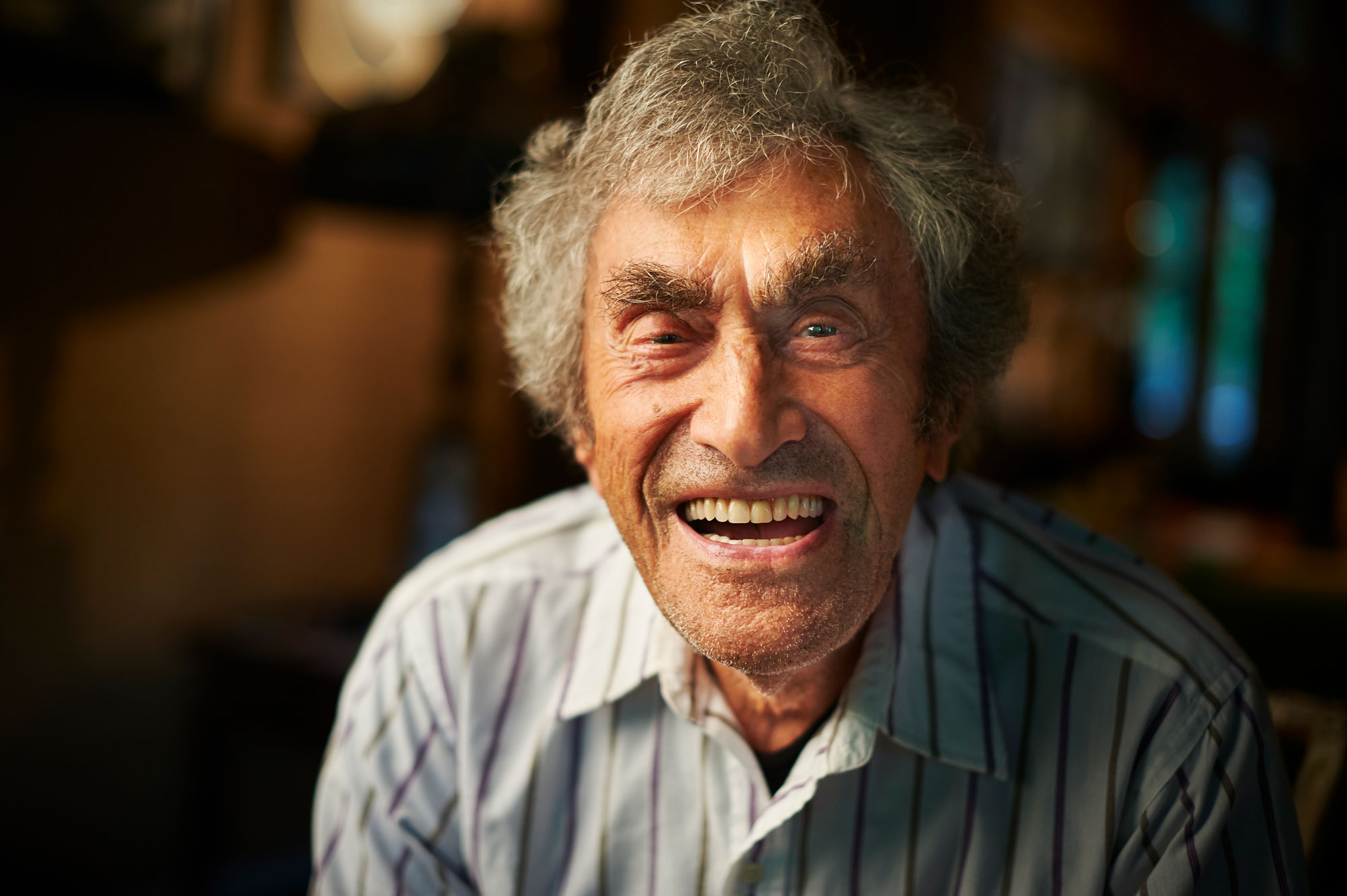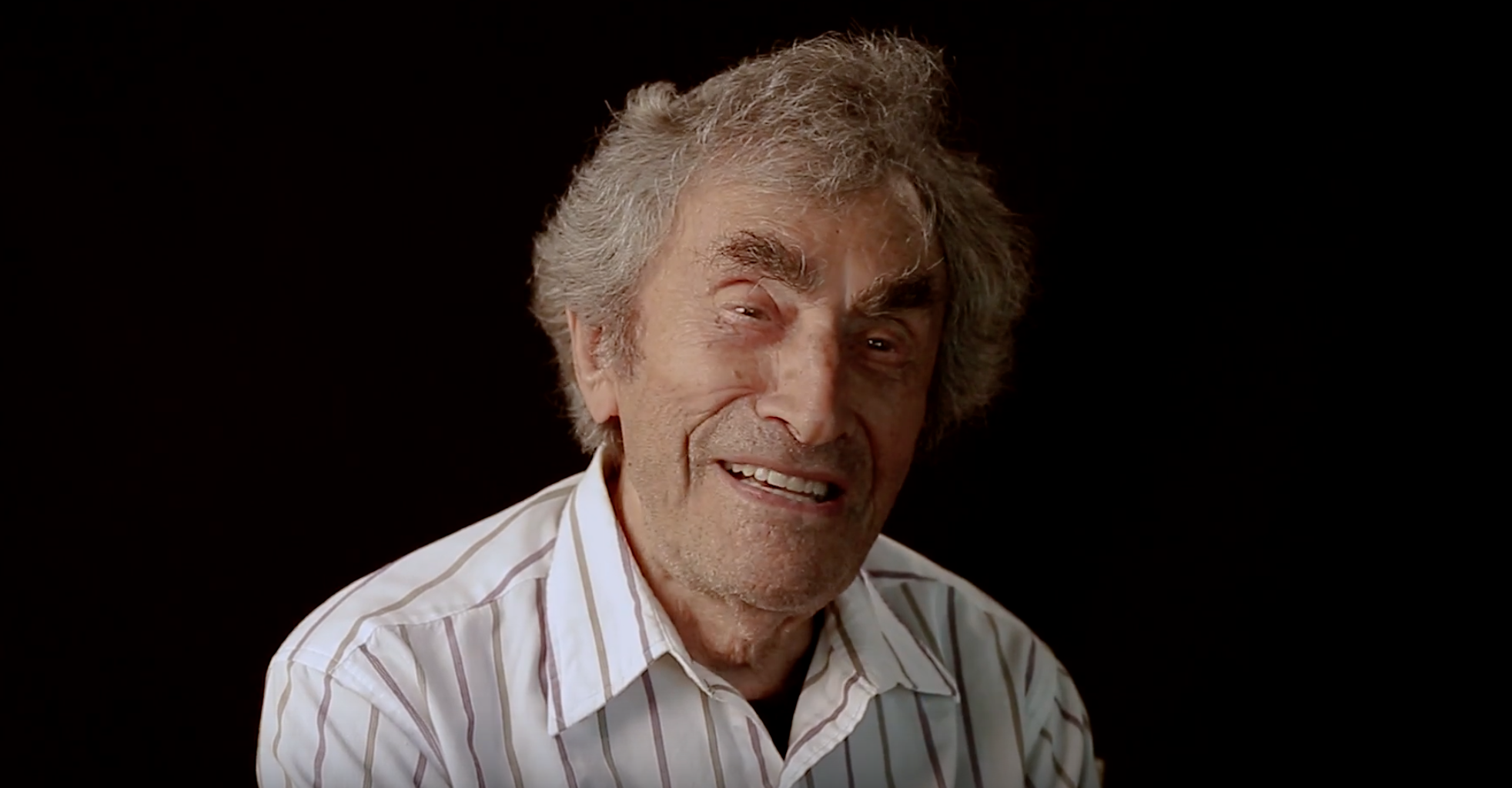

Herman Snyder Page
Herman Snyder Page
Herman Snyder
“Never be afraid.”
Preface & Background
Herman Snyder was born Heim Laib Sneider on January 1, 1921, in Wilna, Poland. Today, this city is called Vilnius and is the present day capital of the Republic of Lithuania. The city “…known to the Jews as Vilna (Wilna) and to Poles as Wilno,” was known as the ‘Jerusalem of Lithuania.’ Out of a population of approximately 196,000 in 1931, 28%, or 55,000, were Jewish. This figure has been estimated to have risen to 57,000 by September 1939. Due to an influx of refugees, the Jewish population had swollen to at least 80,000 by June 1941.”
Essentially, Herman was born into a city that had a strong Polish and Jewish identity established, but this identity was to be heavily contested in the years following his birth and WWI.
Love Conquers Everything
Herman’s father, Kalman Snieder, was a Hebrew teacher and his mother, Tiba Snieder, had grown up in the United States. Her family moved to the United States in 1885, and she had gone to a university before her parents urged her to return to their homeland in 1914 to reclaim the money for her dowry. She never returned to the States due to the outbreak of WWI; she settled, married, and had three children with Kalman Snieder, the oldest being Herman. Herman describes the family as a poor, yet optimistic family. His mother would translate letters for people who had relatives in America in return for food from the farms.
“You have to love what you do, you need a reason to live.”
At the age of thirteen, Herman already spoke four languages, Hebrew, Yiddish, Lithuanian and Polish. At the same age, Herman was apprenticed to two brothers as a cabinetmaker and learned the trade, working initially for food.
After three to four years, he was supporting himself by making windows, doors, and furniture, everything that was needed for a house. It was hard physical labor because everything was done manually, and the wood was ripped and planed by hand. At the age of sixteen and a half, he vividly remembers working on installing windows, instinctively knowing that that he would never be hungry with the skills that he had acquired.
During his apprenticeship, he also went to Hebrew school, and he also attended a Catholic School where he earned his high school degree at the age of 18.
In June 22, 1941, the Nazi army seized the city of Vilnius. According to Herman, the Jews were told to take what they could and go to a specific location in the market place. From there, they were taken to another location where there were ghettos, and his family was to stay in the ghetto. Herman’s instinct was to flee the city.
“You’re young, so you run. I was lucky.”
Herman explains that by then, he had a general understanding of what was happening to the Jews in Western Europe. Anti-Semitism was already widespread thanks to Poles working with the Germans to spread the anti-Semitic propaganda, blaming the Jews for the many problems that had befallen the people. His thinking at the time was very perceptive.
“Everyone was against you; we lived in a country that didn’t like the Jews anyways…I decided not to wait; I didn’t know then what was going to happen, but I didn’t like what was going on between Russia and Germany…I knew that Jews were being killed; not only by the Germans, by others. You’re young, so you run. I was lucky."
In essence, his instincts told him to run.
He fled the city, but after more than two months, he found no one else on the run.
“Don’t go, don’t go. ”
At that point, Herman returned to his family. He remembers his mother pleading with him, “Don’t go, don’t go, “ but for the second time, he decided to run away. It was only after the war that he learned that three days after his second departure, all of the families in the ghetto were executed, their bodies thrown into massive ditches.
Editor's Note
For background on the power struggle and conflict surrounding Vilnius from the latter years of WWI through the duration of WWII, read more here.
On The Run
Herman brought nothing but himself into the woods, where he survived for over two years on the run with other Jewish partisans that grew in number as time went on, always headed towards Russia. According to Herman, it was always a dangerous situation. They didn’t know whom to trust; they risked their lives many times trying to obtain food because they were starving, going days at a time without food and water because they were afraid to emerge from hiding.
They would dig up raw potatoes from farmers’ yards, eat fruits from trees, and steal food when necessary; they couldn’t start fires to cook their food for fear of being discovered from the smoke. Once upon seeing a beautiful lake, he washed for the first time in 11 months; afterwards, his clothes fell off his body into shredded pieces.
He also described the suffering during the bitter cold of winter with subzero temperatures, unbearably cold, hungry, and unsure if he would wake up the next day.
At one point, they had a German family on the Polish-German border that sent their children into the woods to inform the group when the Germans were coming so they knew when to hide. “Not all Germans were bad,” Herman explained.
“Not all Germans were bad. ”
On countless occasions, Herman and his group survived life-threatening situations. He describes a time when he was given money and went into a town to buy food, and as he crossed the street, a German officer and a Polish officer approached him. After some discussion with Herman speaking Polish, the German officer ordered that he drop his pants to prove that he was Polish and not Jewish regarding circumcision.
The Polish officer, aware that Herman was Jewish and sympathetic, exclaimed that they were late and didn’t have time to investigate further.
As time went on, the Russians provided the partisans with weapons, and they would defend themselves. On one occasion, Herman’s group of partisans got wind of a train with 17,000 German soldiers on board. They disassembled the train tracks and rigged dynamite so that when the train came, it exploded.
Herman and his group of partisans finally arrived at the Russian border in 1943 and were allowed into Russia. During this time, he met his future wife, Anna, at a marketplace. “I married a Russian girl…it was the most beautiful thing that ever happened to me. Dedicated, honest, dignified, only the truth. She didn’t believe in any monkey business or hurting anybody. The Russians are hard working; they are honest…”explained Herman.
“I married a Russian girl…it was the most beautiful thing that ever happened to me.”
He talked about how many Russians were killed during WWII, and the numbers are astounding. At the end of the war, he recounted the great celebration with the Russians and how he was singing and crying for three days.
Once his hometown was liberated after the war, he finally went back to find out what had happened to his family only three days after his escape.
He stayed in Russia until 1945.
“Suffering too much does not kill you...”
Herman, Anna, and their first child moved to the United States in 1949 to meet up with his mother’s family who had remained in the United States.
From that point on, Herman learned to read blueprints and calculations with the help of Carnegie Mellon and made a living as a carpenter and contractor, building over 400 houses in the Pittsburgh area.
“...don’t be afraid of work; it will never kill you.”
Herman has been a tireless worker all of his life, utilizing his many talents and building upon his knowledge. He has accomplished much in his career due to his work ethic. Herman firmly believes that work and suffering will never kill you, it can only make you stronger; “Suffering too much does not kill you, because if you have hope, it’s psychological. So don’t be afraid of work; it will never kill you.”
“The harder you work, the stronger you get, physically and mentally.“ Herman believes that dedicating one’s life to an occupation brings strength where one can derive satisfaction from work well done. “You have to love what you do, you need a reason to live.”
“...health is your wealth.”
Despite Herman’s strong belief in work ethic, he never sacrificed his values or health for his work or career. “Work gives you everything. How can we live without work? What are we going to do, count money and make more money, and then what? Another day older and deeper in debt?”
He continues saying, “I made a good living, but I never sacrificed my health for it.” He values love, family, hard work and above all, life and health. “There is no substitute for life, and health is next; health is your wealth.”
He honors his beloved wife’s memory, he cherishes his family, and he uses his talents and wisdom to make the world a better place.
“If you have one life to live, why don’t you try to do the best you can?”
Herman suffered much, lost much, and stared at death directly in the eyes. However, his overwhelming determination and hope for life helped to sustain him along his journey and battle the odds. “Life is so precious."
Herman has truly lived his life to the fullest, with respect for all human dignity and most importantly, he has lived with love.
Herman Snyder bottom
Herman Snyder bottom

